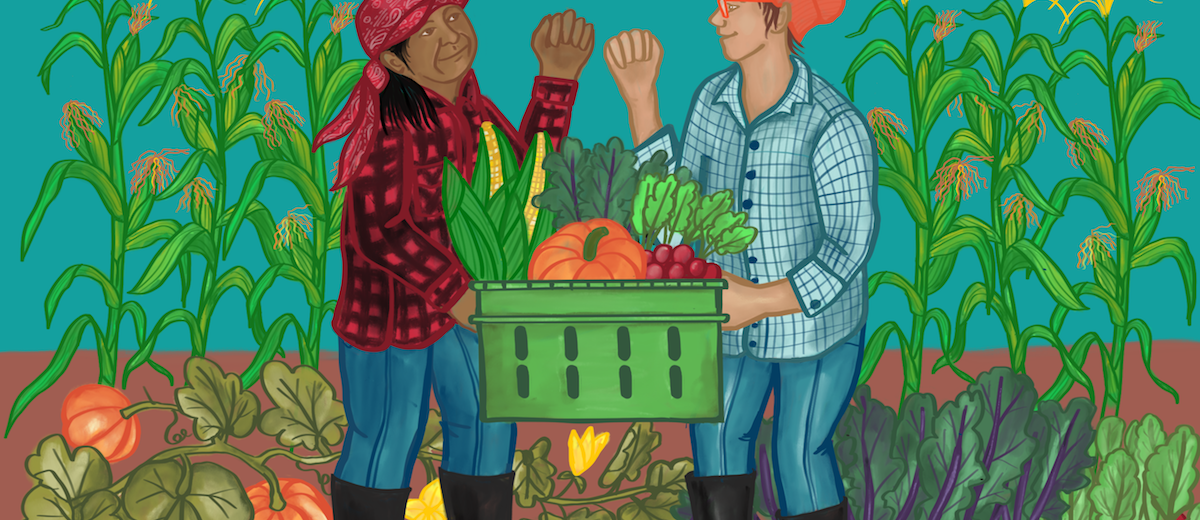“Individuals can only be healthy when the systems around them are healthy…We cannot have health when we leave some people or some other beings out of the circle of our concern.”
— Rupa Marya, author of Inflamed
Activist-musician-physician Dr. Rupa Marya has spoken extensively about how we need a care revolution to heal our communities and the planet from the many wounds of capitalism and colonialism. Recent events in California bear this out.
Recent storms brought historic levels of rain and snow to the drought-ridden state. We witnessed the flooding of fields and homes, buildings caught in mudslides or drifting into the ocean, and sinkholes opening up to swallow the earth as built infrastructure and the ground itself reached its capacity to absorb and divert water across the state.
Regrettably, California is poorly positioned to benefit from the deluge. Decades of widespread industrial agriculture have hardened the soil, limiting its ability to absorb water. And the water that was flooding fields of chemical-covered plants and soil? That’s going into our waterways. According to the NRDC, agricultural runoff is a leading source of harm to water quality for rivers, lakes, and wetlands. For oceans, it’s estimated that a whopping 80 percent of marine pollution comes from such runoff. That pollution has devastating impacts on our ecosystems and on our communities (A 2022 study found that nearly 400,000 California residents lack safe drinking water, mostly due to agrochemicals contamination.)
Environmental injustice disproportionately impacts communities of color, primarily those who are Latinx and employed as farmworkers. But agroecology and regenerative agriculture can be a powerful source of protection and healing. A recent Civil Eats article pointed out that many farms who practice regenerative agriculture have been better able to bounce back from the storms and increased the soil’s ability to absorb water.
We’d also be remiss not to mention the recent killing of seven farmworkers in Half Moon Bay, California. While full details remain unknown about this devastating shooting—what we do know is that farmworkers are underpaid, overworked, and often isolated. Much like the land is abused, so too is the labor exploitation and mental health pressure “part of the cycle of abuse that is happening to these human beings” in the words of Lorena Gonzalez Fletcher, Executive Secretary-Treasurer of the California Labor Federation.
As Marya says: to avert, withstand, and heal from the ongoing climate crises and the violence inflicted upon our communities, we need to rethink all of our systems to center care.
In community and care,
Tiffani, Tanya, Christina, and Anna
Read Issue No. 59 of the Real Food Scoop
Illustration by Kara Sievewright

